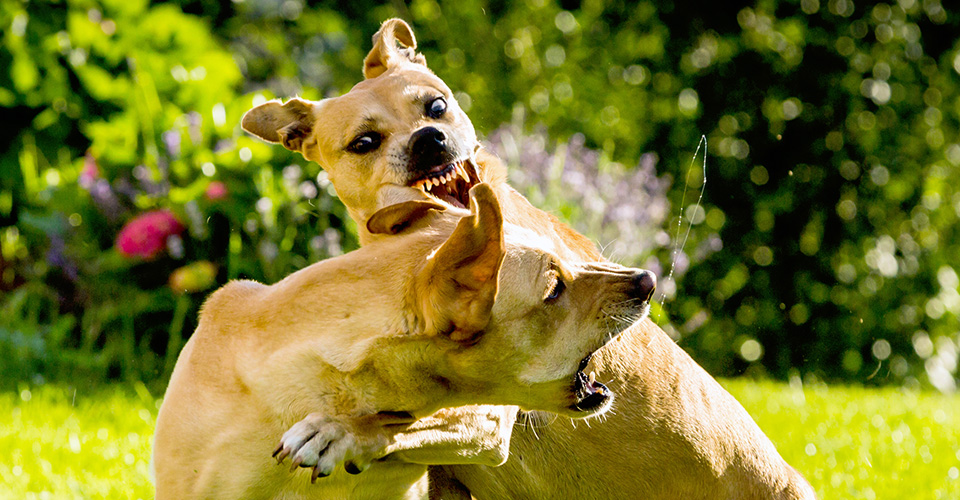Your dog has just been bitten. What now?
Dr Jean-Lynn van Heerden shares tips and easy steps to follow.
Dr Jean-Lynn is a small animal Veterinarian, treating mainly cats and dogs. She loves to be outdoors and road and trail running with friends. She also plays indoor action hockey.
All this she does when she is not saving or sharing useful tips with fur-moms and dads.
We asked her a few questions on your behalf. Keep reading for everything you need to know about what to do in a dog bite emergency.
How dangerous is a dog bite?
“Dog bites can be very mild from just a superficial scratch to very severe where large areas of the body are involved. Bite wounds don’t always display all the trauma from the outside and often large lesions are not visible until the patient is extensively examined. Bite wounds are dirty wounds and if not treated thoroughly can have severe complications for the patient.”
How do I know if my pet requires emergency treatment after it has been bitten?
“Most bite injuries to pets require a visit to the vet and I will always advise clients to take their pet for a check-up after a bite incident. Cats often sustain internal trauma after a dog bite incident that will need urgent veterinary care and that might be overlooked by a pet parent.”
Five easy steps for pet parents to follow after a dog has bitten their pet.
Step 1: Firstly, get your pet to safety, away from the attacker.
Step 2: Check if there are any visible wounds or injuries (leg lameness, etc) after the incident.
Step 3: Make sure your pet is breathing well and not bleeding profusely from any wounds.
Step 4: If there are obvious wounds or lameness, please take your pet to the vet asap.
Step 5: If your pet is calm and does not seem to be in distress anymore, you can try to rinse all wounds with clean water, if your pet will allow you to do this.
(Do not rinse wounds over the chest / neck area – these wounds need the attention of a vet.)
Learn more about our Vet of the Month (VOM).
Dr Jean-Lynn is married and has 2 beautiful daughters. She graduated from Onderstepoort in 2009. Before Tuks, she studied Animal Science at Stellenbosch and obtained her BSc. Agric degree in 2003. She has been working at small animal clinics across Pretoria since she has qualified. Dr Jean-Lynn has recently opened her own Veterinary Clinic in Lynnwood. She’s also a proud hoomom of 2 adorable dogs Gus (a retriever) and Jewel (a labrador).
Dr Jean-Lynn, why do you love pets so much?
“The reason I love pets so much is because they always seem to appreciate everything that you do for them and never stop loving you, no matter what. They seem to understand our emotions and can be incredibly supportive when you need it. I could not imagine my life without them.”
Have you always wanted to become a Vet?
“I have always wanted to work with animals or in the agricultural sector. I did not always think I would become a vet, but as I journeyed through life my passion for veterinary science evolved, and here I am, a small animal veterinarian.”
We asked our VOM to share helpful tips for a speedier recovery at home.
- “Follow you vet’s instructions with regard to wound care.”
- “Give medication correctly and complete all courses where necessary.”
- “Feed your pet a good, balanced diet to help the wounds recover. Good nutrition is vital for recovery.”
- “Take your pet for a check-up at the vet sooner rather than later if their recovery takes too long.”



